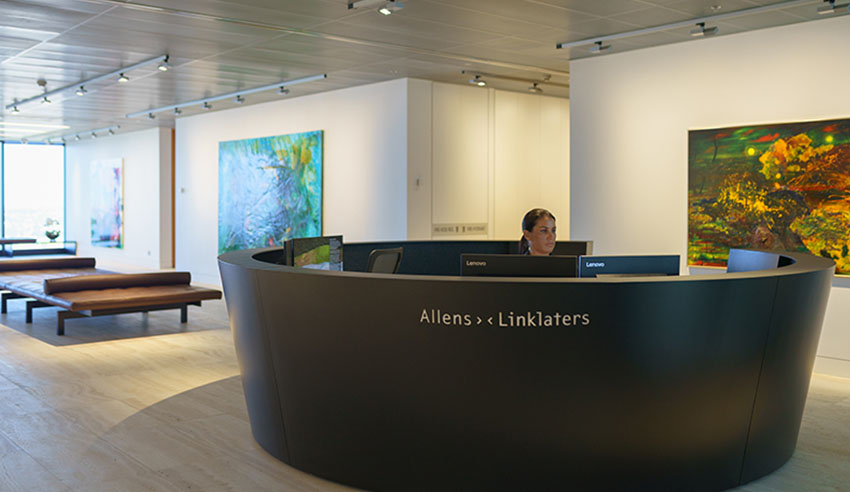Geopolitical issues, lingering pandemic effects and the rise of ESG concerns will mark a volatile, yet busy, year ahead for private equity, a new report from international law firm Allens.

After first predicting that 2021 could be one of the biggest and busiest years ever for dealmakers in Australia, Allens has released its PE Horizons 2022: volatility means opportunity report, detailing what the year ahead could look like in the private equity space.
“With listed company valuations soaring to new heights, most PE investors looking at ASX-listed companies were either rejected early by target boards, or unable to justify their initial valuation and therefore walking away from the opportunity. As a result, long term infrastructure investors and cashed-up strategic buyers accounted for almost all significant public M&A activity in 2021. A similar story unfolded in the private M&A space, where most of the big-ticket M&A involved acquisitions by acquisitive long-term investors and cashed-up strategic acquirers,” the report stated.
“Only a few months ago, these conditions looked almost certain to continue in 2022. However, only a few months can feel like a lifetime in M&A. The corporate optimism and deal making bullishness that characterised the past year has been replaced with a distinct sense of caution. The war in Ukraine and consequent dislocation in global energy markets has led to the spectre of rising inflation, increased interest rates and significant market volatility.”
As capital markets are already “wobbling” in 2022 and further falls are predicted, Allens anticipates an increase in PE “take-private approaches” as companies “grapple with the compounding impacts of geopolitical crises, inflationary pressures and lingering pandemic effects”.
“We also predict that PE sponsors will increasingly focus their efforts on innovative pre-bid lock up mechanisms, including those with management, such as BGH’s co-operation agreement with Hansen’s CEO. These go beyond (but in many cases are in addition to) traditional mechanisms such as pre-bid stakes and shareholder support statements. These types of lock-up agreements are a natural fit for financial sponsors given there is often a need to remain close to existing management post-transaction, which is generally less relevant for strategic bidders,” the report stated.
“Although lock-up devices received considerable attention in 2021 (in particular, the practice of bidders having their target sign up to a ‘no talk’ restriction that is not subject to a fiduciary out), our expectation is that PE sponsors will continue to test the boundaries of market practice, particularly with key management shareholders who hold significant stakes in the target. Combined with volatile market conditions, we expect these devices to enhance the prospects of PE take-private bids.”
However, the report predicts another strong year ahead for leveraged finance and funds, after a record-breaking year for M&A in 2021 saw strong buyout deals within the Australian market.
“With M&A volumes anticipated to continue to be strong in 2022, we predict volume in both of these financing markets to grow. This is fostering an interesting dynamic where aspects of the covenant flexibility of a ‘term loan B’ financings is emerging in the direct lending market. Our financial sponsor clients, buoyed by the demand for financing opportunities across both the ‘term loan B’ and direct lending market, are using arbitraging terms to seek to introduce ‘covenant-lite’ financings to large cap deals in the direct lending market,” according to the report.
“Global direct lending funds, supported by an accommodating LP investor base, are willing to explore exporting incurrence style covenant technology and terms to gain market share in the Australian leveraged loan markets. While mid-market deals will continue to follow the more traditional structure of a leverage covenant, this is one development to watch in 2022 for the large cap space.”
In addition, ESG and greenwashing have become important issues in the PE space – with a recent Responsible Investment Association Australasia research report revealing that 86 per cent of Australians expect their superannuation or other investments to be invested responsibly and ethically. As a result, a number of super funds have actively made responsible investment a focus within their marketing campaigns.
“Developments in Europe have seen the introduction of a regulatory regime focussed on disclosure, which seeks to reduce so-called greenwashing and distinguishes impact funds, for which ESG matters are their raison d’être, from funds whose managers claim to take ESG considerations into account in their investment processes (the regime applies to both, and will apply to Australian sponsors marketing their funds to European investors),” the report stated.
“While a regime of this nature is yet to be introduced in Australia, ASIC is currently conducting a review into greenwashing, with a view to improving governance and accountability in the market, and this is likely to be an area of regulatory focus going forward.”

Lauren is the commercial content writer within Momentum Media’s professional services suite, including Lawyers Weekly, Accountants Daily and HR Leader, focusing primarily on commercial and client content, features and ebooks. Prior to joining Lawyers Weekly, she worked as a trade journalist for media and travel industry publications. Born in England, Lauren enjoys trying new bars and restaurants, attending music festivals and travelling.